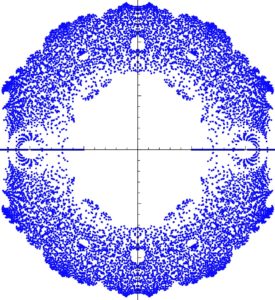M2 Second semester, courses
Random matrix theory and applications
A rigorous analysis of disordered systems represents an open problem in statistical physics and condensed matter. To tackle the staggering complexity of such systems, one usually assumes the model parameters to be sampled from random distributions. Random Matrix Theory has wide-ranging applicability going across the analysis of the level spacing distribution in atomic nuclei, quantum chaos, evolutionary game theory, finance, and beyond.
In these lectures, I will provide useful analytical tools typically employed in the derivation of statistical properties of the eigenvalues of various classes of random matrices. I will start from a characterization of matrix models with real spectrum and discuss in particular:
i) Ensembles with independent entries;
ii) Ensembles that have rotational invariance.
Then, I will enter into more detail performing rigorous computations based also on the replica method. In the last lectures, I will focus on exactly solvable mean-field models with applications to spin glasses, non-convex optimization problems, and theoretical ecology.
Bibliography
- M. L. Metha, Random Matrices, Academic Press (1991).
- G. Livan, M. Novaes, P. Vivo, Introduction to random matrices: theory and practice, Springer (2018).
- M. Potters, J.-P. Bouchaud, “A First Course in Random Matrix Theory, Cambridge University Press (2020).

Ada Altieri
(Université Paris Cité)

Comments are closed





